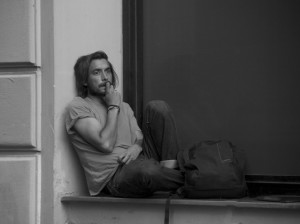 Anxiety is a heightened state of nervousness or dread ranging from butterflies to panic attacks to phobias. It is caused by a PERCEIVED threat, which may or may not be rational (i.e. going outside). Anxiety disorders occur most often between the ages 18 to 64 years, and have higher rates in women. However, all ages and genders can be afflicted with anxiety.
Anxiety is a heightened state of nervousness or dread ranging from butterflies to panic attacks to phobias. It is caused by a PERCEIVED threat, which may or may not be rational (i.e. going outside). Anxiety disorders occur most often between the ages 18 to 64 years, and have higher rates in women. However, all ages and genders can be afflicted with anxiety.
Common anxiety signs and symptoms include:
- Feeling nervous
- Feeling powerless
- Having a sense of impending danger, panic or doom
- Overwhelming feelings of dread
- Having an increased heart rate, palpitations
- Breathing rapidly (hyperventilation)
- Sweating
- Trembling
- Feeling weak or tired
- Trouble concentrating or thinking about anything other than the present worry
- Depression
- Difficulty sleeping
Several types of anxiety disorders of adulthood exist:
- Specific phobias are characterized by major anxiety when exposed to a specific object or situation and an intense desire to avoid it. Phobias provoke panic attacks in some people.
- Social anxiety disorder (social phobia) involves excessuve feelings of anxiety, fear and avoidance of social situations due to feelings of embarrassment, self-consciousness and concern about being judged or viewed negatively by others.
- Panic disorder involves repeated episodes of sudden feelings of intense anxiety and fear or terror that reach a peak within minutes (panic attacks). You may have feelings of impending doom, shortness of breath, heart palpitations or chest pain.
- Agoraphobia is anxiety about, and often avoidance of, places or situations where you might feel trapped or helpless if you start to feel panicky or experience embarrassing symptoms, such as losing control.
- Generalized anxiety disorder includes persistent and excessive anxiety and worry about activities or events — even ordinary, routine issues. The worry is usually out of proportion to the actual circumstance, is difficult to control and interferes with your ability to focus on current tasks. It often occurs along with other anxiety disorders or depression.
- Substance-induced anxiety disorder is characterized by prominent symptoms of anxiety or panic that are a direct result of abusing drugs, taking medications, being exposed to a toxic substance or withdrawal from drugs.
- Anxiety disorder due to a medical condition includes prominent symptoms of anxiety or panic that are directly caused by a physical health problem.
- Specified anxiety disorder and unspecified anxiety disorder are terms for anxiety or phobias that don’t meet the exact criteria for any other anxiety disorders but are significant enough to be distressing and disruptive.
